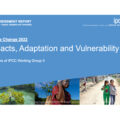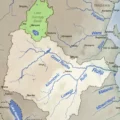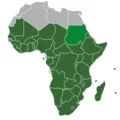Integrating adaptation practice in assessments of climate change science: The case of IPCC Working Group II reports
Research article by Candice Howarth on 28 Apr 2022
Through a high-level analysis of authors of the IPCC’s Working Group II reports and special reports of AR6, the authors of this paper explore the evolution of representation of practitioners in IPCC WGII author teams from AR5 to AR6.







